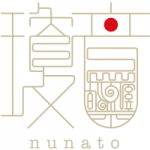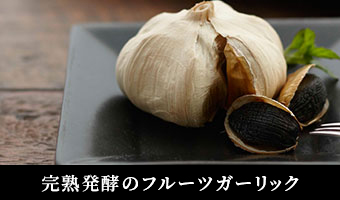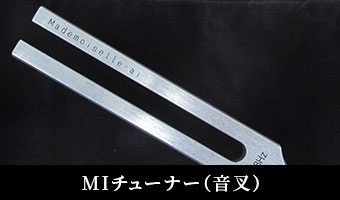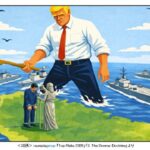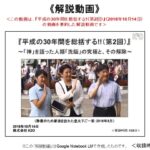8月1日、衆議院の大島理森議長が、通常国会を振り返って、異例の所感表明をした。
「民主的な行政管理、国民の負託を受けた行政執行といった点から、民主主義の根幹を揺るがす問題」
森友・加計で揺れた国会。しかも、「原発マフィア」による内閣人事局ができ、官邸に対する官僚の忖度が極まったのが、2013年以後の日本国。 あまりに当たり前のことを、大島議長が、なぜ、今、発言したのか?
背景は三つあるが、それぞれ、関連する。
一つは、大島氏の選挙区は青森であり、そこに六ケ所村がある。ここは、プルトニウムを中間備蓄する形で日本の原子力政策を支える地方だった。大島氏は、この原子力政策の行方について、よく、知っている。
アメリカは「日本はプルトニウムを持ちすぎる」と疑念をかけた。これは、日本の核武装との関連を言っている。
トランプは、北朝鮮に、完全な非核化を求めているが、実は、それ以上に、日本が秘密裏に核兵器開発してきたことに対する疑念が強い。プーチンとヘルシンキで話したから、日本の隠れた核兵器製造についても、意見交換しただろう。
今の官邸は、安倍晋三と菅官房長官と、そして、特別秘書官の今井尚哉。
2004年から始まった「原子力ルネッサンス」の国家計画。これを策定したのが、経済産業省きってのエリート官僚(エール大学留学)の柳瀬唯夫で、それを、業界全体に広める役割が、新日鉄の今井敬の甥の今井尚哉だった。今井尚哉は、ロシアとのエネルギー外交から始まって、内閣人事局ができてからあとは特別秘書官になり、昭恵の「夫人付き」部隊を使いこなし、内政外交すべてについて、安倍晋三の頭脳になった。その姿勢を、日本の国家安全保障局の谷内が支える形だった。
しかし、今井の現状認識は、そもそも戦争屋に浮かされた思惑の中で出来上がったものだったので、これが、一昨年にトランプが大統領になってから、全部裏目。プーチンには、全く信用されていないことは、一昨年12月の山口での北方領土交渉で大失態を招いてしまった。
加計学園の認可問題で、愛媛県との交渉に当たったのが柳井唯夫で、完全に総理案件を匂わしていたのが、これを国会の参考人招致では、隠すことに専念し、つじつまが合わないことばかりになったので、しまいに大島議長の所感となった。
官邸は7月24日、まだ57歳の柳瀬を退任を発表し、翌日、行った。この措置は、役人人事からしたら、異常である。
考えられるのは、安倍政権になって強烈に進めてきた原発輸出に、目途が立たないとの判断が、原発マフィアにも、出てきたのではないか?
大島議長は、ここに、風を、読んだ。これが二つ目。
7月30日、日立製作所はイギリスでの原発事業について、現時点で撤退すれば、2700億円の損失と発表した。そして、続ける場合は、人件費高騰もあって事業費は最大約3兆円になるとした。こんな資金を使って、儲かるのか? 実は、イギリスへの原発輸出は、事故など巨大損失が出た時、日本国家にかぶせようと、日立は経団連と組んで、目論んできた。そのために、この6月に経団連会長に、日立の中西宏明会長を就任させたばかりだった。
この目論見について、イギリス側から、さらに日本へのリスク負担が出るような事態があったのか?
今、イギリスは、EU とともに、日本との連携を模索するが、そのイギリス女王の権威をまるで認めないのがトランプだった。
電力販売での経済性(儲け)だけを見るのではなく、マイナス面も考えろ。日本の原子力政策のそもそもの姿勢について、ちゃんとを見ろ。きちんと、放射能被害などを未然の段階から進んで処理してきたのか? 日本国民は騙せても、海外はどうか? 国家の損失、国民の負担がさらに大きくなるぞ、とどこかかから、指摘されたのか?
そして、脱原発の声。これが第三。これまで安倍晋三は、2014年の都知事選の細川応援の時以来、脱原発を言う、小泉純一郎のことを、小ばかにしてきたが、世界が今、平昌五輪が終わって、原発についてどの方向に動き出したか?
この7月の西日本豪雨と、台風12号で、武器や原発を、優先的に考える愚かさに、ようやく気づかされたのか?
安倍晋三は、30日は自宅に籠りきりになった。
そして、日本とアメリカから、二つ記事。
一つは、アメリカから。祖父、岸信介に、CIAがカネを流していたというもの。 (最後部に、記事を転載)。
もう一つは、またまた、安倍晋三の病状説がでている。 これは、花道つくりの始まりかも。
前回、安倍晋三が総理大臣をやめるとき、「体調がもたないから無理だ」と国会に報告したのも、大島理森氏だった。
アベシンゾーは三選確実との票読みだったが、原発推進という経済政策の心臓部がどうも世界から歓迎されず、しかも、自民党の存在そのものが、アメリカのマネーでできたという出自の秘密がばらされて、どうしていいかわからなくなっているのだろう。これは岸信介のことだ。国内政局では、学界と統一教会を取り込んで、しかも、国内メディアを総動員して、敵を貶めることは得意でも、世界全体の中での、日本の政策を、ジャパンハンドラーなしで、考えたことのない人間、晋三クン。
最新ニュースでは、進次郎も出馬するかも、と。
今、外務大臣の河野太郎は、インドネシアのアセアン外相会談に参加して、中国の王毅と話しているが、
間違いなく言えるのは、 中国は、安倍晋三を、絶対に信用しないと言うこと。
そして、北朝鮮の金正恩は、はたして、安倍晋三と、直接、話す機会を、与えるか、ということ。
父の金正日が、2002年9月17日に、拉致について「冒険主義がやった」と頭を下げ、平壌宣言を交わしたが、それ以後、一方的に、北はきちんと対応していないと決めつけ、話し合いを拒否していたのは、アベシンゾーだった。そうすることで、対北朝鮮で軍事対決姿勢を強め、それが、メディア戦略に乗って、国民の不安をどんどん煽ってきた。
しかし、今、金正恩と、トランプが直接、会い、遺骨回収など成果が出だしているのに、ここでも、日本の防衛省は、5000億円かけてイージスアショアを北朝鮮にむけて配備しようとする。それには秋田の人間は、当然ながら納得できない。
沖縄も、基本となる構図は、同じ。敵と和解する時代に何で? ということ。
こんな中で、北の金正恩は、安倍晋三に、なんらかの「花」や「土産」を用意するというのか?
何もしない。もう安倍晋三の思惑はすべて外れ、壊れたので、消えていくのを待てばいい、と考えているかも。
以下は、 ニューヨークタイムスのアーカイブから、
紹介者のメッセージ: 「これね、1994年の新聞です。岸信介と実弟の佐藤栄作がCIAと、カネで自民党と日本を支配していた事がよくわかる新聞の記事なのです。犯罪者なんだよ、岸一族! それが今も日本では続いていて、安倍晋三と仲間達が日本国民を地獄の底まで落として、自分達はカネもうけしてるんだ。」
Archives | 1994
C.I.A. Spent Millions to Support Japanese Right in 50’s and 60’s
By TIM WEINER and
View page in TimesMachine, Page 001001
The New York Times Archives
In a major covert operation of the cold war, the Central Intelligence Agency spent millions of dollars to support the conservative party that dominated Japan’s politics for a generation.
The C.I.A. gave money to the Liberal Democratic Party and its members in the 1950’s and the 1960’s, to gather intelligence on Japan, make the country a bulwark against Communism in Asia and undermine the Japanese left, said retired intelligence officials and former diplomats. Since then, the C.I.A. has dropped its covert financial aid and focused instead on gathering inside information on Japan’s party politics and positions in trade and treaty talks, retired intelligence officers said.
The Liberal Democrats’ 38 years of one-party governance ended last year when they fell from power after a series of corruption cases — many involving secret cash contributions. Still the largest party in Japan’s parliament, they formed an awkward coalition in June with their old cold war enemies, the Socialists — the party that the C.I.A.’s aid aimed in part to undermine.
Though the C.I.A.’s financial role in Japanese politics has long been suspected by historians and journalists, the Liberal Democrats have always denied it existed, and the breadth and depth of the support has never been detailed publicly. Disclosure of the covert aid could open old wounds and harm the Liberal Democrats’ credibility as an independent voice for Japanese interests. The subject of spying between allies has always been sensitive.
The C.I.A. did not respond to an inquiry. In Tokyo, Katsuya Muraguchi, director of the Liberal Democratic Party’s management bureau, said he had never heard of any payments.
Continue reading the main story
Advertisement
Continue reading the main story
“This story reveals the intimate role that Americans at official and private levels played in promoting structured corruption and one-party conservative democracy in post-war Japan, and that’s new,” said John Dower, a leading Japan scholar at the Massachusetts Institute of Technology. “We look at the L.D.P. and say it’s corrupt and it’s unfortunate to have a one-party democracy. But we have played a role in creating that misshapen structure.”
Bits and pieces of the story are revealed in United States Government records slowly being declassified. A State Department document in the National Archives describes a secret meeting in a Tokyo hotel at which Eisaku Sato, a former Prime Minister of Japan, sought under-the-table contributions from the United States for the 1958 parliamentary election. A newly declassified C.I.A. history also discusses covert support sent that year.
But the full story remains hidden. It was pieced together through interviews with surviving participants, many well past 80 years old, and Government officials who described still-classified State Department documents explicitly confirming the Kennedy Administration’s secret aid to the Liberal Democrats in the early 1960’s.
The law requires the Government to publish, after 30 years, “all records needed to provide a comprehensive documentation of major foreign policy decisions and actions.” Some State Department and C.I.A. officials say the Kennedy-era documents should stay secret forever, for fear they might disrupt Japan’s coalition government or embarrass the United States. Other State Department officials say the law demands that the documents be unsealed. A Secret Operation That Succeeded
The C.I.A.’s help for Japanese conservatives resembled other cold war operations, like secret support for Italy’s Christian Democrats. But it remained secret — in part, because it succeeded. The Liberal Democrats thwarted their Socialist opponents, maintained their one-party rule, forged close ties with Washington and fought off public opposition to the United States’ maintaining military bases throughout Japan.
One retired C.I.A. official involved in the payments said, “That is the heart of darkness and I’m not comfortable talking about it, because it worked.” Others confirmed the covert support.
“We financed them,” said Alfred C. Ulmer Jr., who ran the C.I.A.’s Far East operations from 1955 to 1958. “We depended on the L.D.P. for information.” He said the C.I.A. had used the payments both to support the party and to recruit informers within it from its earliest days.
By the early 1960’s, the payments to the party and its politicians were “so established and so routine” that they were a fundamental, if highly secret, part of American foreign policy toward Japan, said Roger Hilsman, head of the State Department’s intelligence bureau in the Kennedy Administration.
“The principle was certainly acceptable to me,” said U. Alexis Johnson, United States Ambassador to Japan from 1966 to 1969. “We were financing a party on our side.” He said the payments continued after he left Japan in 1969 to become a senior State Department official.
The C.I.A. supported the party and established relations with many promising young men in the Japanese Government in the 1950’s and 1960’s. Some are today among the elder statesmen of Japanese politics.
Masaru Gotoda, a respected Liberal Democratic Party leader who entered parliament in the 1970’s and who recently served as Justice Minister, acknowledged these contacts.
“I had a deep relationship with the C.I.A.,” he said in an interview, referring to his years as a senior official in intelligence activities in the 1950’s and 1960’s. “I went to their headquarters. But there was nobody in an authentic Government organization who received financial aid.” He would not be more explicit.
“Those C.I.A. people who were stationed in the embassy with legitimate status were fine,” he said. “But there were also covert people. We did not really know all the activities they were conducting. Because they were from a friendly nation, we did not investigate deeply.” Recruitment Was ‘Sophisticated’
The recruitment of Japanese conservatives in the 1950’s and 1960’s was “a pretty sophisticated business,” said one C.I.A. officer. “Quite a number of our officers were in touch with the L.D.P. This was done on a seat-by-seat basis” in the Japanese parliament. A second C.I.A. officer said the agency’s contacts had included members of the Japanese cabinet.
As the C.I.A. supported the Liberal Democrats, it undermined their opponents. It infiltrated the Japan Socialist Party, which it suspected was receiving secret financial support from Moscow, and placed agents in youth groups, student groups and labor groups, former C.I.A. officers said.
Obstructing the Japanese opposition “was the most important thing we could do,” one said.
The covert aid apparently ended in the early 1970’s, when growing frictions over trade began to strain relations between the United States and Japan, and the growing wealth of Japan made the agency question the point of supporting politicians.
“By that time, they were self-financing,” a former senior intelligence official said. But the agency used its longstanding relationships to establish a more traditional espionage operation in Japan.
“We had penetrations of all the cabinet agencies,” said a C.I.A. officer based in Tokyo in the late 1970’s and early 1980’s. He said the agency also recruited a close aide to a prime minister and had such good contacts in the agriculture ministry that it knew beforehand what Japan would say in trade talks. “We knew the fallback positions” in talks over beef and citrus imports, he said. “We knew when the Japanese delegation would walk out.”
Useful though it may have been, the inside information rarely gave American trade negotiators the upper hand with the Japanese. ‘The Reverse Course’ Of American Policy
The support for the Liberal Democrats had its origins in what some historians call “the reverse course” of American policy toward Japan after World War II.
From 1945 to 1948, the American forces who occupied Japan purged the Government of the right-wing militarists who had led Japan into war. But by 1949, things had changed. China went Communist. The Soviet Union exploded its first atomic bomb. Washington was fighting Communism, not ferreting out rightists.
The American occupation forces freed accused war criminals like Nobusuke Kishi, later Japan’s Prime Minister. Some of the rehabilitated politicians had close contacts with organized crime groups, known as yakuza. So did Yoshio Kodama, a political fixer and later a major C.I.A. contact in Japan who worked behind the scenes to finance the conservatives.
These politicians also drew support from a group of retired diplomats, businessmen and veterans of the Office of Strategic Services, the World War II precursor of the C.I.A. The group’s leader was Eugene Dooman, an old Japan hand who quit the State Department in 1945 to promote “the reverse course.”
During the Korean War, the Dooman group pulled off an audacious covert operation, bankrolled by the C.I.A.
Japanese conservatives needed money. The American military needed tungsten, a scarce strategic metal used for hardening missiles. “Somebody had the idea: Let’s kill two birds with one stone,” said John Howley, a New York lawyer and O.S.S. veteran who helped arrange the transaction but said he was unaware of the C.I.A.’s role in it.
So the Dooman group smuggled tons of tungsten from Japanese military officers’ caches into the United States and sold it to the Pentagon for $10 million. The smugglers included Mr. Kodama and Kay Sugahara, a Japanese-American recruited by the O.S.S. from a internment camp in California during World War II.
The files of the late Mr. Sugahara — researched by the late Howard Schonberger, a University of Maine professor writing a book nearly completed when he died in 1991 — described the operation in detail. They say the C.I.A. provided $2.8 million in financing for the tungsten operation, which reaped more than $2 million in profits for the Dooman group.
The group pumped the proceeds into the campaigns of conservatives during Japan’s first post-occupation elections in 1953, Mr. Howley said in an interview. “We had learned in O.S.S., to accomplish a purpose, you had to put the right money in the right hands.”
By 1953, with the American occupation over and the reverse course well under way, the C.I.A. began working with warring conservative factions in Japan. In 1955, these factions merged to form the Liberal Democratic Party.
The fact that money was available from the United States soon was known at the highest levels of the Japanese Government.
On July 29, 1958, Douglas MacArthur 2d, the general’s nephew, who was then United States Ambassador in Tokyo, wrote to the State Department that Eisaku Sato, the Finance Minister, had asked the United States Embassy for money. Mr. Sato was Prime Minister of Japan from 1964 to 1972 and received the Nobel Peace Prize in 1974.
Ambassador MacArthur wrote that such requests from the Government of Prime Minister Nobusuke Kishi were nothing new. “Eisaku Sato, Kishi’s brother, has tried to put the bite on us for financial help in fighting Communism,” his letter said. “This did not come as a surprise to us, since he suggested the same general idea last year.”
Mr. Sato was worried, an accompanying memo explained, because a secret slush fund established by Japanese companies to aid the L.D.P. was drained.
“Mr. Sato asked if it would not be possible for the United States to supply financial funds to aid the conservative forces in this constant struggle against Communism,” the memo said. While it is unclear whether Mr. Sato’s request was granted directly, a decision to finance the 1958 election campaign was discussed and approved by senior national security officials, according to recently declassified C.I.A. documents and former intelligence officers.
In an interview, Mr. MacArthur said the Socialists in Japan had their own secret funds from Moscow, a charge the left denied.
“The Socialist Party in Japan was a direct satellite of Moscow” in those years, he said. “If Japan went Communist it was difficult to see how the rest of Asia would not follow suit. Japan assumed an importance of extraordinary magnitude because there was no other place in Asia from which to project American power.” A Close Call In 1976
In 1976, the secret payments were almost uncovered.
A United States Senate subcommittee discovered that Lockheed Corp., seeking lucrative aircraft contracts, had paid $12 million in bribes to Prime Minister Kakuei Tanaka and the Liberal Democrats. The conduit was Mr. Kodama — political fixer, tungsten smuggler and C.I.A. contact.
Then a retired C.I.A. officer living in Hawaii phoned in a startling tip.
“It’s much, much deeper than just Lockheed,” Jerome Levinson, the panel’s staff director, recalls the C.I.A. man saying. “If you really want to understand Japan, you have to go back to the formation of the L.D.P. and our involvement in it.”
Mr. Levinson said in an interview that his superiors rejected his request to pursue the matter.
“This was one of the most profound secrets of our foreign policy,” he said. “This was the one aspect of our investigation that was put on hold. We got to Japan, and it really all just shut down.”
大島理森議長の「民主主義の根幹を揺るがす問題」発言は重い。で、進次郎も動く。
いいね ♡ 0
この記事を書いた人
新井信介
1957年長野県中野市生まれ。東京外国語大学(中国語専攻)から住友商事を経て独立。中国の改革開放に立ち会い、独立後は西欧世界にもネットワークを構築。地球史の視野で、国家・宗教・マネーの意味と構造を探り、個人の可能性(想像性・創造性)と、普遍的文化価値を探求している。そのために、『皆神塾』を主宰し、会員制の『瓊音(ヌナト)倶楽部』も立ち上げて、研鑽を深めています。
